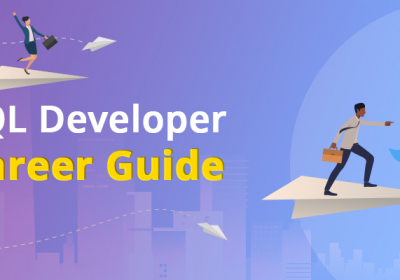
How to Be a Career Changer and Break Into a New Industry
Breaking into an industry is always a challenge, but it can be even more so when you are a career changer. But, it doesn’t mean it is impossible, and if its something you want, you should definitely try it. These are some strategies to help you be a career changer and break into a new industry.
Focus Resume Around Transferable Skills
Transferable skills are the abilities that you have that could apply to other careers and jobs. It can be soft skills like communications, languages, teamwork, and creativity, or hard skills like analytics, critical thinking, problem-solving, and math. Also, this skill doesn’t have to mean precisely the same.
For example, let’s say your current career is sales. You’ve probably developed the ability to talk people into buying stuff and have excellent spoken communication skills. So, you could use this skill in a career in marketing and advertisement where selling an idea is the primary goal.
Another option could be if you are an art teacher and want to change to a career that pays more. You could choose to be a UX designer where creativity is a must. The point is to identify which skills you have and compare them with the skills you will need for each career option.
Then, you have to build your curriculum in a way that highlights these skills. Because you have the disadvantage of probably being older than other entry-level candidates, you have to use every tool under your belt. You can specify how you gained this ability and how you contributed to your previous employer.
Present Yourself with the Employer’s Needs in Mind
When you apply to a new job, you should always research the company to know if they are an enterprise you will like to work for. That’s the same strategy you could use for entering a new industry. Research the industry and what issues companies are having when looking for top talent.
When you know what the employers are looking for and what they need, then you can create a profile that offers precisely that. You have to look for soft and hard skills that you will need and how you will learn the ones that you don’t have. Some good options are online courses and coding bootcamps. Think of your resume as if you were giving a pitch deck and the product is your professional self.
You have to be prepared to answer questions like how you will add value to the company and how you will meet the employer’s current needs. For example, you could ask questions during the interview to understand why the employer is looking to fill the position. Then, you can explain how your profile can be the perfect fit.
Look for Shadow Jobs
Shadow jobs are opportunities where you convince a professional to let you shadow them during the day. This means following them around at their job to learn firsthand what they do and how the company is. These jobs not only give you an insight into the reality of any career, but it gives you a unique opportunity to network.
You will be able to meet people in the industry you want to enter, maybe assist on some of the tasks, and even learn critical skills that are only learned on the job. Depending on the duration and type of these shadow jobs, you could even count them as experience in your curriculum, especially if you shadow someone that is recognized in the industry.
These jobs are also a great option if you have enough free time to do it while studying or between jobs. And who knows? You may make connections that will end up being your future employers.
Consider Volunteering
Volunteering has similar benefits than shadow jobs, the difference being that you will actually be hired in a position that will count as proper experience for future employment. The downside is that you won’t get pay, but you will be exchanging time for experience. This option is viable if you can’t really find another job because you lack experience.
Volunteering will help you create connections in the industry. You will be supporting the organization you volunteer for, and if you offer to volunteer for the giants in the industry, you could have a job offer at the end of the experience. Also, sometimes volunteering experiences are for non-profits where workers are few, so you will probably learn a lot more than the task related to your career.
Go to Events
You will never enter a new industry if you don’t put yourself out there. That applies to professional and also to romantic relationships. So, when trying to break into a new industry, you must attend the different events.
These events can be meetups, competitions, forums, seminars, or any other thing you find where you meet people in the same career, CEOs, managers, and recruiters. Those are the people you want to make connections with. If they know who you are, they may think of you when looking to fill the next open position.
Start Your Own Projects
This option applies not only to people who want to break into a new industry but also for any other professional. Sometimes we spend too much time working on the same field, and we don’t realize that in the long run that only narrows our opportunities. Starting your own project could be the solution to that.
For career changers, starting your own project will give you an opportunity to develop your skills in a real-life situation. And it will allow you to build your experience without actually getting a job. It also shows you can work on your own and are self-sufficient. For example, if your new career of choice is web development, you could start by creating a personal website to showcase your work.
In Summary
In short, changing careers is demanding, and you should take advantage of every tool at your disposal to make the transition smoother. Transferable skills, meeting the employer’s needs, shadow jobs, volunteering, or anything you can think of to make yourself stand out are the right strategies





